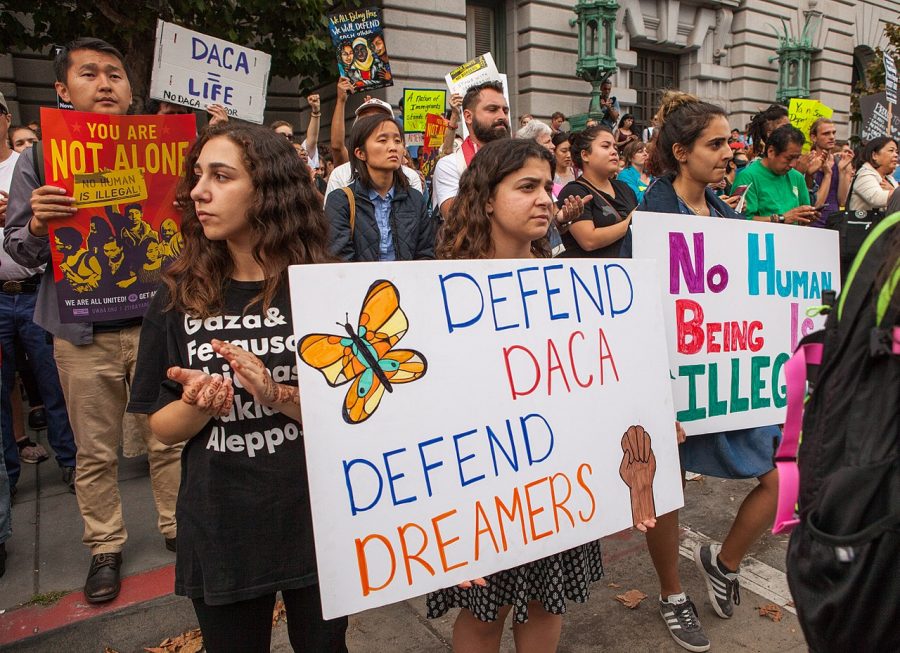Letter to the Editor: Targeted on Campus
Protestors in San Fransisco after the recision of DACA on Sept. 5, 2017. (Courtesy Wikimedia Commons)
August 24, 2019
Walking onto the health sciences part of campus sometimes feels like walking into an alternate universe.
At home and in the communities I care for, people are talking about and organizing in response to what’s happening right now at the border and the threats targeting our neighborhoods — and responding appropriately with horror, outrage and fear. Meanwhile, in the classroom, instructors launch into lecture, and silence echoes from the offices of the deans. This isn’t specific to upper campus — it’s most departments.
Being a student isn’t the only defining identity we possess. Some of us have heard statements like “send her back” and “you’re not American enough” in real life — not just on the President’s Twitter. Some of us face microaggressions, discrimination and racial trauma more regularly than tenured professors and administrators may be aware. We still have the strength and resilience to show up to learn and provide professional, quality care to our patients, but these experiences and emotions can have serious implications for student success and wellness on campus. They don’t stop impacting us, and we don’t stop thinking about what’s happening just because our instructor is talking about pathophysiology or pharmacology.
Maybe the University of Utah is an educational institution and not political. Maybe statements from deans don’t change the political landscape. Maybe Utah feels far away from the issue. But hateful rhetoric pays no attention to borders, and we have campus community members who experience the impacts of current events viscerally and deeply. Administration has a critical role in setting and normalizing culture at any organization: compassionate, responsive institutional statements of solidarity could validate student experiences, contribute to a culture of safety and inclusion and begin an important conversation about how to genuinely and comprehensively ensure every student’s success. We are taught to view patients as more than a disease process or an appointment time. It’s time to expand our understanding and treatment of students as well.
The Dream Center published a community update that explicitly commits to student safety, regardless of immigration status or country of origin, and provides campus resources that support students holistically. The deans would do the right thing by following suit.
—U Health Student







